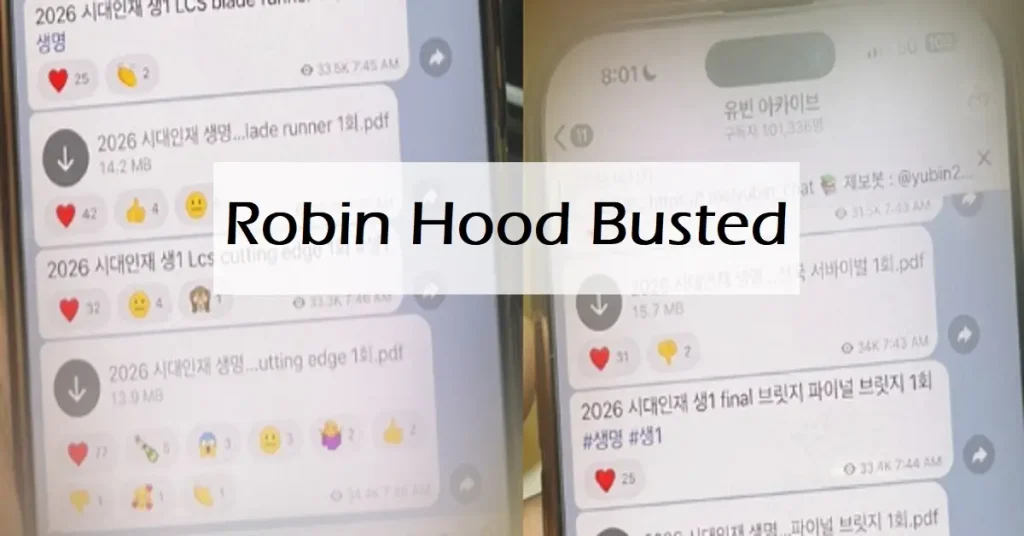Yubin Archive shutdown in Korea exposes 330 k-student piracy ring distributing 16 k textbooks—legal lessons for educators and learners in 2025.
In a dawn raid straight out of a K-drama cliff-hanger, South Korea’s Ministry of Culture pulled the plug on **Yubin Archive**—the Telegram mega-channel that had become every student’s secret weapon since July 2023.
One moment 330,000 members were downloading textbooks, lecture notes and exam cheat-sheets; the next, the channel vanished and the 28-year-old admin was in cuffs. Here’s what happened, why it matters, and how the story is already rewriting the rules of “free education” in 2025.
The Rise of a Pirate Library
Picture a college freshman cramming for finals at 3 a.m., only to find the campus bookstore sold out of the one textbook that actually explains quantum mechanics. Enter **@YubinArchive**: a Telegram channel whose bio read “Ending educational inequality—one PDF at a time.” By August 2024 the group had ballooned to 330 k members, sharing a staggering 16,000 titles ranging from high-school math workbooks to bar-exam bibles. Lines at campus printers shrank; GPAs rose. Even law-school deans quietly admitted half their cohorts were on the channel.
The “Minority Room” That Changed Everything
For months admins claimed the uploads were a pure act of charity. Then forensic accountants found **a hidden, paid “Minority Room”**—accessed via crypto payments—where premium content (think brand-new MCAT guides) was drip-fed to paying subscribers. Suddenly the “Robin Hood” narrative cracked. Publishers, who had filed complaints as early as May 2023, seized the moment. Armed with blockchain transaction records and Telegram metadata, Korea’s Copyright Crime Unit traced wallets, raided an apartment in Seoul’s Mapo District on August 9, and arrested the lead admin by sunrise.
Digital Forensics & the Domino Effect
The Ministry’s Digital Forensics Lab reverse-engineered message IDs, matched IP logs, and even correlated upload timestamps with Wi-Fi café CCTV. Investigators say the operation was “startlingly organized,” with rotating upload bots and 1 TB of mirrored drives. Tip for admins everywhere: “Anonymous” Telegram handles still leave breadcrumbs if wallets or metadata touch the real world.
Real Fallout: Students vs. Publishers
Within 24 hours, #SaveYubinArchive trended on Korean Twitter, but publishers saw vindication. “Piracy under the banner of equality still kills creator income,” said Kim Min-ho, CEO of a leading textbook house. The irony? Many students who benefited from the channel are now receiving **copyright-awareness emails** from their own universities, warning that future uploads could lead to expulsion or fines.
What Happens Next
Investigators vow to widen the net, examining uploaders and heavy downloaders. Meanwhile, Korean ed-tech startups are racing to launch **legal, low-cost subscription libraries**—proof that demand for affordable study material isn’t going anywhere. For students, the safest move is pivoting to open-license platforms like **Khan Academy Korea** or **LibGen alternatives** that pay authors via Creative Commons.
Bottom line: Yubin Archive’s takedown is a wake-up call. Free PDFs feel like a lifeline until the legal bill arrives. Want to stay on the right side of the law—and still ace that exam? Check the legit links below and share your go-to legal resource in the comments.

